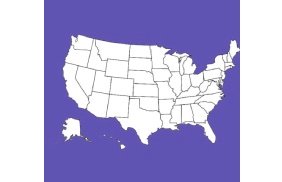Earlier this week, we learned that the United States Drug Enforcement Administration (DEA) will likely reclassify marijuana under federal law from Schedule I to Schedule III of the Controlled Substances Act (CSA) based upon the recommendation from the United States Department of Health and Human Services.
As we discuss below, this act of rescheduling marijuana will not legalize adult recreational cannabis use across the states. Nevertheless, it is a historic decision with wide-ranging and perhaps uncertain consequences that will deeply impact the cannabis industry.
Drug Classification Under the Controlled Substances Act
At the outset, it is important to understand the differences between the classification of schedules under the CSA. Drugs are classified into five distinct categories or schedules depending on whether the drug is deemed to have acceptable medical use and the drug’s potential for addiction and abuse.
Schedule I drugs are categorized as the most dangerous substances, are deemed to have no acceptable medical use by the federal government, and are considered the most addictive with the highest potential for abuse by users. In addition to marijuana, other examples of Schedule I drugs include heroin, lysergic acid diethylamide (LSD), and 3,4 methylenedioxy-methamphetamine (ecstasy).
In contrast to Schedule I drugs, Schedule III drugs, substances, and chemicals are defined as having a low potential for abuse and consist primarily of medications that contain limited amounts of narcotics that are used for analgesia or cough-relief purposes (e.g., cough syrups with codeine).
What is the Significance of Reclassification as a Schedule III Drug?
So, what does it mean to reclassify marijuana into Schedule III of the CSA? Schedule III drugs are identified as having a moderate to low potential for abuse and addiction and are deemed to have a currently accepted medical use.
Under federal regulations, Schedule III drugs require a prescription that cannot be filled or refilled more than six months after the date of the prescription and which cannot be refilled more than five times. Some examples of Schedule III drugs are ketamine or acetaminophen products, which contain codeine, both of which are prescribed and can be purchased at pharmacies.
In short, the Food and Drug Administration (FDA) monitors the development of Schedule III drugs and issues final approval while the DEA enforces federal law applicable to Schedule III drugs. These Schedule III drugs are to be manufactured by federally registered manufacturers and distributed by health care professionals and pharmacies.
Moving marijuana into Schedule III does not legalize its possession, use, or even its cultivation, manufacture, or production. While the federal government considers rescheduling marijuana and acknowledges that it has medical value, marijuana will continue to remain subject to the many federal laws and regulations governing its distribution, possession, and use set forth in the CSA.
This creates an additional disconnect between the federal and state governments. The conflict is apparent because state governments (by and through state regulatory agencies such as the Office of Cannabis Management in Minnesota) and not the federal government oversee state-specific adult recreational use and medical programs.
Not only does each state’s cannabis legislation differ from one another, but each such state’s cannabis legislation is out of sync with the CSA. States have legislated the cultivation, manufacture, production, distribution, possession, and use of marijuana, and the cultivators, manufacturers, and retailers of marijuana products are not licensed or registered with the federal government.
The FDA has no oversight of marijuana products developed and sold under state cannabis programs. Nor do states require the same level of detail in the production standards as the federal government. Therefore, there is a direct conflict between the state-level adult recreational use and medical programs and federal law.
Accordingly, it remains unclear as to whether rescheduling marijuana now prohibits it from being sold in dispensaries across the country. Will the DEA or FDA modify enforcement of the federal policies regarding marijuana? These are issues that will need to be resolved in the future.
Rescheduling also does not resolve other issues cannabis operators face. Complexities associated with banking cannabis customers, insuring cannabis operations, and even transporting marijuana across state borders did not get resolved.
Tax Relief May Soon Be Available
On the positive side of things, rescheduling should provide long-sought tax relief to cannabis businesses across the country and offer lawful cannabis businesses access to additional capital. Section 280E of the Internal Revenue Code should no longer prohibit cannabis businesses from claiming normal business expense deductions available to businesses in other industries.
This is because Section 280E does not apply to Schedule III drugs. As a result, cannabis businesses should be able to deduct, for federal income tax purposes, ordinary and necessary business expenses. This, in turn, would lower tax payments and allow for suitable redeployment of capital into other areas of opportunity. This would alleviate financial pressure on start-up cannabis operations, which would have significant start-up costs and potentially negative cash flow.
Rescheduling is not a perfect solution, nor is it the final resolution. It will not resolve many other issues currently burdening the cannabis industry. Nonetheless, it is a monumental and important shift in the U.S. drug policy and will likely have a far-reaching impact on the cannabis industry.




